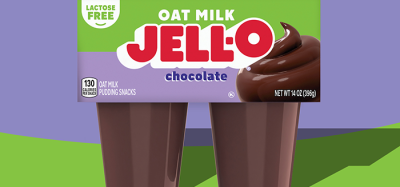CFS adds further weight to USDA lawsuit re GMO labelling
- Like
- Digg
- Del
- Tumblr
- VKontakte
- Buffer
- Love This
- Odnoklassniki
- Meneame
- Blogger
- Amazon
- Yahoo Mail
- Gmail
- AOL
- Newsvine
- HackerNews
- Evernote
- MySpace
- Mail.ru
- Viadeo
- Line
- Comments
- Yummly
- SMS
- Viber
- Telegram
- Subscribe
- Skype
- Facebook Messenger
- Kakao
- LiveJournal
- Yammer
- Edgar
- Fintel
- Mix
- Instapaper
- Copy Link
Posted: 9 October 2020 | Mandy Parrett (New Food) | No comments yet
The Center for Food Safety (CFS) in the United States has filed an amended complaint challenging the USDA’s ruling about genetically engineered seeds, as an addendum to their original lawsuit filed in July 2020.


In the lawsuit, the Center for Food Safety (CFS) has questioned several aspects of the USDA ruling which, it claims, discriminates against large segments of the population, is misleading, omits the majority of groceries that are genetically modified (GMO) from requiring any such labelling, and violates the rights of retailers to voluntarily provide more meaningful information for the benefit of their customers, by prohibiting them from so doing. This new amendment to the lawsuit, however, includes challenging states’ rights to label seeds as genetically modified.
According to George Kimbrell, CFS legal director and counsel in the case, “Consumers have a right to know what’s in their food, including whether it is genetically engineered or not. That’s what this case is fundamentally about: meaningful labelling.
“The same goes for seeds. The decision takes away states’ rights to label seeds, while offering absolutely nothing in return,” he said.
The lawsuit claims that the “bioengineered” food rule will unlawfully leave the majority of genetically engineered foods unlabelled. First, CFS claims it discriminates against tens of millions of minority, poor, elderly, and rural Americans, by allowing labelling through digital QR codes only accessible by smartphones with broadband. CFS claim this is contrary to the Government’s own prior study showing this labelling method was discriminatory, inadequate, and unworkable in grocery stores. Second, when on-package text is used, the rules limit text to only the term ‘bioengineered’, despite the law allowing use of similar, better-known terms such as ‘genetically engineered’ (GE) or GMO, which are well accepted and understood by most people.
Third, the vast majority of genetically engineered foods (highly processed foods, such as oils and carbonated drinks, which are estimated to account for over 70 percent of all genetically engineered foods) are unlawfully left out of the labelling standard entirely, adds CFS. Fourth, the Center says the law prohibits retailers and producers from voluntarily providing more meaningful information to consumers, such as using the well-known terms GE and GMO, in violation of their free speech rights.
GMO seed labelling now challenged
The newly filed case amendment now covers the prohibition on state seed labelling. Despite not including any seed labelling provisions, the federal law prohibits states from enacting laws that would directly or indirectly require the labelling of GE seeds. The suit claims that this prohibition unconstitutionally interferes with states’ rights to regulate their own citizens in the absence of federal regulation. States have chosen to label GMO seeds for a variety of reasons, including to protect biodiversity and ensure transparency for their citizens. A number of states, including Vermont and Virginia, have seed labelling laws that cover GE seeds.
CFS is representing a coalition of food labelling nonprofits and retailers, including the Natural Grocers, operating 157 stores in 20 states, and Puget Consumers Co-op, the nation’s largest community-owned food market.
The 2019 rules implement a 2016 federal law that for the first time required the labelling of GE foods. Congress passed the federal law after several states (Vermont, Connecticut, Maine) passed GE labelling laws, with numerous other states poised to do the same. The labelling is required to be implemented by food manufacturers in January 2022.
CFS’s lawsuit seeks to have the court declare the regulations unlawful and nullify them, and then return the issue to USDA with orders to fix the unlawful portions of the rules.
Commenting on what CFS regards as unnecessary confusion, which it believes will come from using the term ‘bioengineered’, Mark Squire, co-founder of Good Earth Natural Foods and one of the case plaintiffs, said: “Retailers and shoppers have relied on the term GMO for more than a decade to identify and avoid GMO foods. Banning the use of this term and replacing it with a term nobody has ever heard of is misleading and will create massive confusion in the marketplace.”
Another plaintiff, Tara Cook Littman of Citizens for GMO Labeling, said: “A disclosure law that exempts 70 percent of the foods it is supposed to disclose is not a meaningful disclosure law: it is a fraud and allows producers to keep their GMO ingredients secret.”
Related topics
Free From, Labelling, Packaging & Labelling, Regulation & Legislation, retail, Supermarket, The consumer
Related organisations
Center for Food Safety (CFS), Citizens for GMO Labeling, Good Earth Natural Foods, Natural Grocers, Puget Consumers Co-op, United States Department of Agriculture (USDA)









